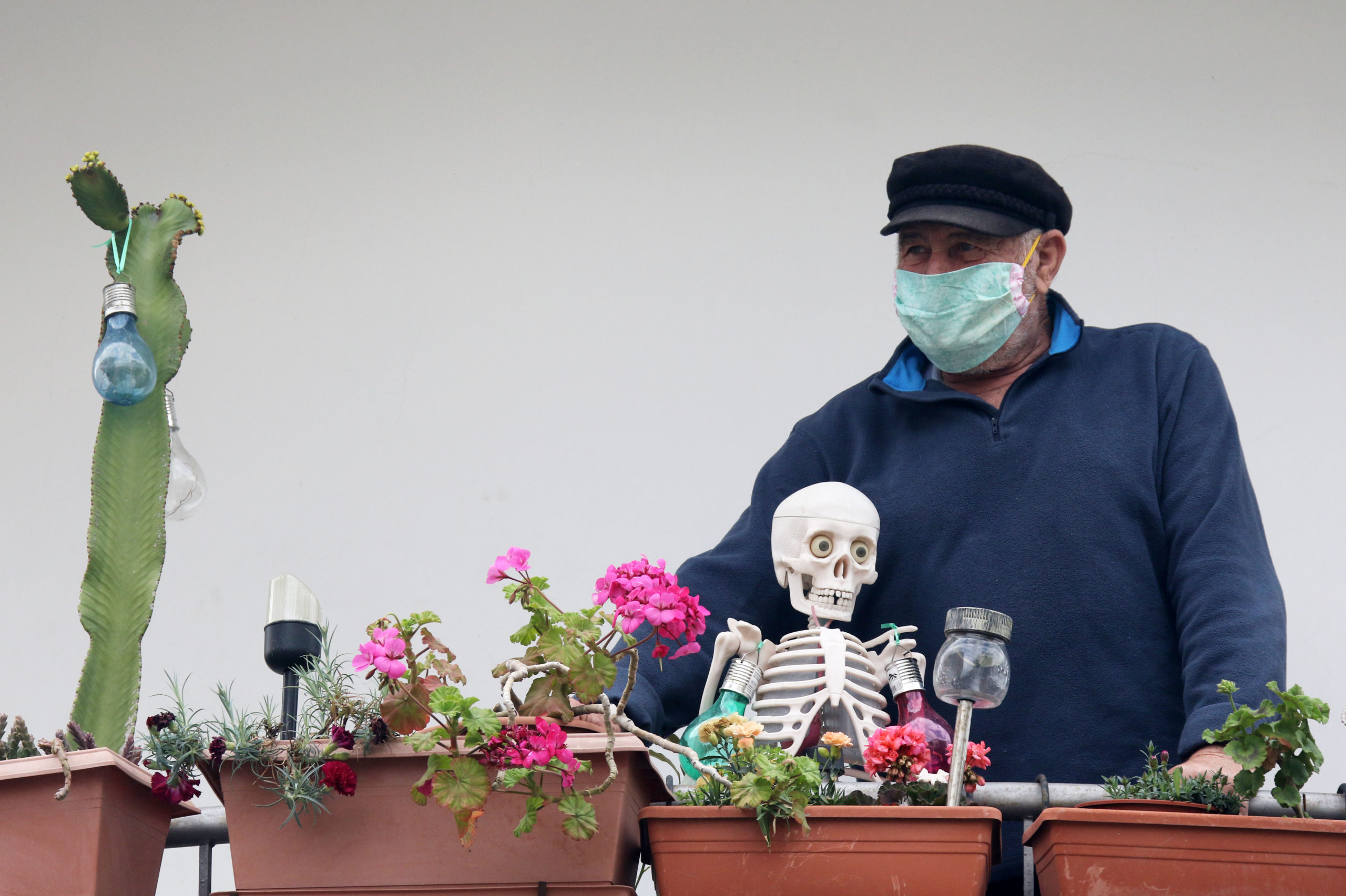COVID-19 cases detected among vulnerable groups have experts worried the virus is circulating undetected in the community, spread by asymptomatic carriers who are visiting relatives despite lockdown rules.
These cases involve people such as cancer patients, pregnant women, elderly people who were tested before being admitted to the hospital for treatment or any other healthcare facility.
Experts have voiced their concerns over the relatively high cases detected from tests on people who are screened before being admitted to hospital.
Member of the Health Ministry’s Epidemiological Monitoring Unit, Dr Leontios Kostrikis, said the number of cases in question is alarming as they were found among members of vulnerable groups.
On Sunday, four out of six new cases reported involved a patient to be admitted to hospital. These cases were found from a total of 93 tests.
Scientists are calling on the public to avoid visiting relatives or friends who belong to vulnerable groups to protect them as apparently there is a number of asymptomatic carriers in the community.
Virologist and UNIC Professor Peter Karayiannis said that it is worrying because patients themselves do not know how they were infected while several claimed that they had no contacts.
He told the Cyprus News Agency, a number of these patients were isolated at home due to their condition, which means that a family member, probably asymptomatic themselves, must have passed on the virus.
“It is very difficult to say how these cases were infected. This tells us that we have cases out there that may be asymptomatic and are passing on the virus.”
Karayiannis urged people belonging to vulnerable groups to take extra care.
“This does not mean that they should lock themselves at home, but when they do go out for a walk to do so wearing a mask and keeping their distance from other people.”
The virologist stressed that tests should be ramped up, now that measures have been relaxed, for scientists to have a better epidemiological picture.
Karayiannis said that the number of cases was too small to consider withdrawing relaxations on restrictive measures.
He added that the Epidemiological Monitoring Unit, advising President Nicos Anastasiades on handling the coronavirus cases is to present the latest data to the president in the coming days.
The data will be crucial for authorities to launch the next stage out of lockdown on May 21 which includes all schools opening, outdoor hospitality and freedom of movement allowed.
Lecturer at the European University Zoe-Dorothea Pana said that restrictive measures were aimed at protecting vulnerable groups from contracting the virus and developing serious symptoms.
“Our goal is to protect vulnerable groups. Depending on the course of the epidemic in the country we will act.
We hope that people will continue abiding by measures with prudence and responsibility so that we do not have to take targeted restrictive measures in the near future. Currently, our goal is to lift restrictive measures,” said Pana.










